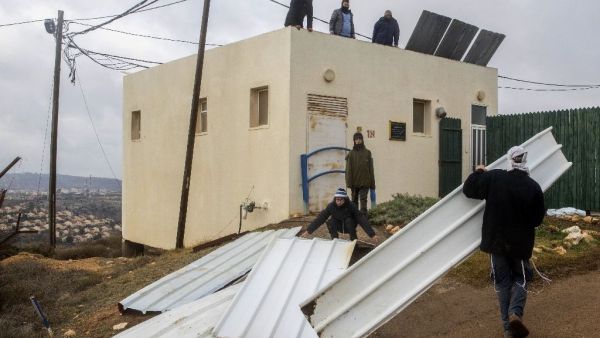Egypt requested a postponement of a UN Security Council vote scheduled for Thursday on a draft resolution demanding a halt to settlement activity in the West Bank, the US State Department said, after coming under enormous pressure from Israel.
The Egyptians were "consulting with their Arab League partners about the text," US State Department spokesman John Kirby said. He added that he did not know "if or when a vote will be rescheduled."
US Secretary of State John Kerry's scheduled remarks on a vision for the Middle East were also postponed in light of the Egyptian move, Kirby said.
Earlier the Israeli government came out in full force against the vote.
Prime Minister Benjamin Netanyahu called on the US to veto the "anti-Israel resolution," while the country's UN ambassador, Danny Danon, said he expected "our greatest ally" to sink the document.
Kerry spoke by phone to Netanyahu on Thursday morning, as well as to Egyptian Foreign Minister Sameh Shoukry on Wednesday night, according to Kirby. The secretary also spoke to the foreign ministers of Jordan and Saudi Arabia.
US president-elect Donald Trump denounced the resolution before the Egyptian decision to postpone the UN vote.
"As the United States has long maintained, peace between the Israelis and the Palestinians will only come through direct negotiations between the parties, and not through the imposition of terms by the United Nations.
"This puts Israel in a very poor negotiating position and is extremely unfair to all Israelis," Trump said in a statement.
The draft resolution, which Egypt had submitted on Wednesday night, condemns the settlements as a violation of international law and as a hurdle to implementing the two-state solution, according to media reports.
The global community, including the US and the UN, has long condemned settlement activity. The US had vetoed a similar draft resolution in 2011, saying it would further hinder Israeli-Palestinian peace talks.
The resolution comes amid the announcement last week that David Friedman, who has said that he does not think Israeli settlement activity is illegal, was named as the future US ambassador to Israel.
US President Barack Obama, with less than a month left in office, had called for a settlement freeze upon taking office in 2009, but continued expansion paved the way for sour relations with Netanyahu.
Riyad Mansour, Palestinian ambassador to the UN, had requested that the council take action on the settlements in October, saying that the Palestinians and their Arab partners were seeking a "clear course of action to confront this main obstacle to peace."
The peace process has been long frozen, and a last attempt, led by the US and supported by several global bodies, collapsed in 2014.








